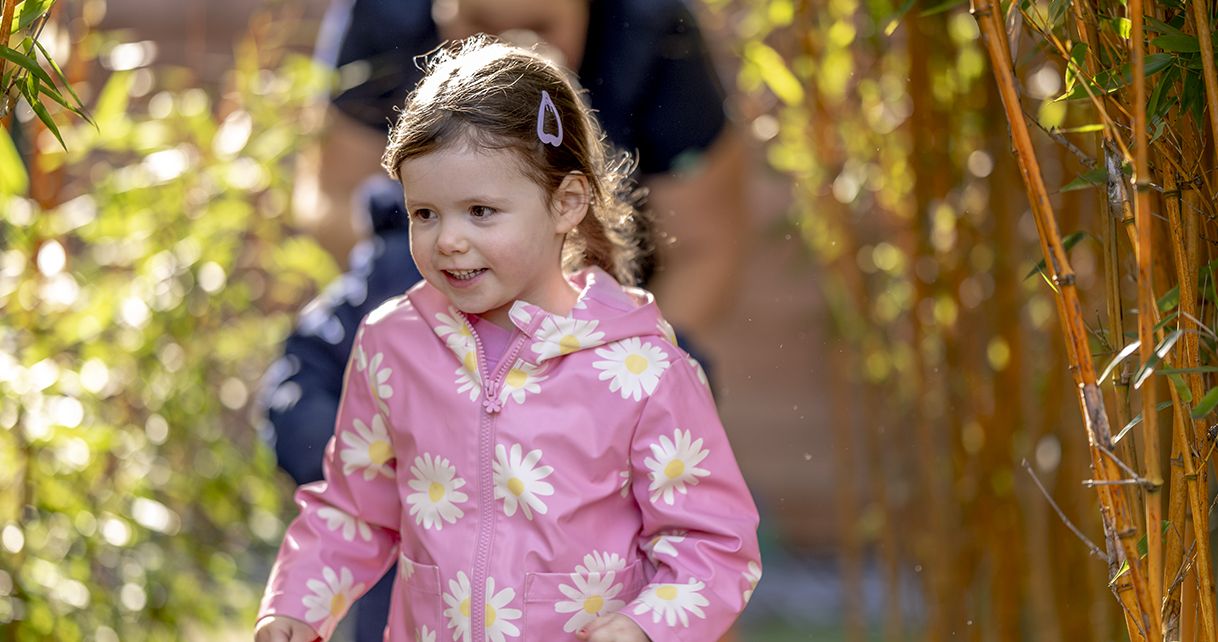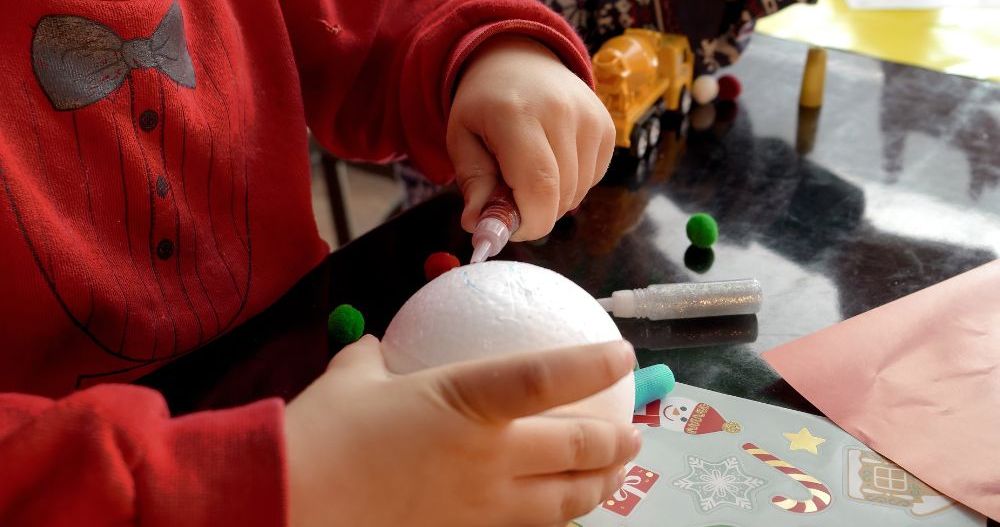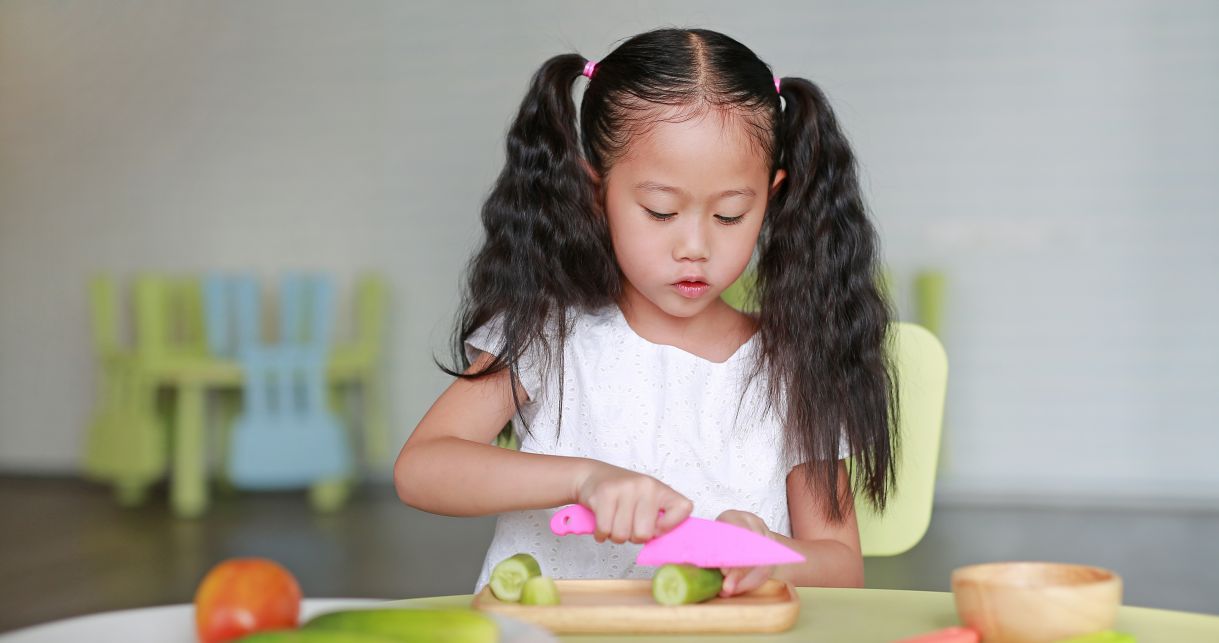7 min read
7 min read
7 min read
7 min read
The first few months of a child’s life bring lots of new experiences and big decisions, especially for first-time parents. But the significance of the end of your parental leave journey and the return to work can often be overlooked.
Starting nursery is a big step for any child and usually coincides with your own transition back to work as a new parent. Many new parents look forward to resuming their careers after having a new baby, but it can take time to find your feet as a working mum or dad.
According to our latest research, seven in 10 (69 per cent) admit that going to work offers them a welcome break from home life, but almost half (49 per cent) can’t wait to be reunited with their children at the end of the day.
And as many as 80 per cent enjoy spending time with colleagues, while 72 per cent think that going back to work has made them appreciate the time they do spend with their children even more.
At Busy Bees, we understand the needs and wants of working parents. Every child settles into nursery differently, but we’ve been working with children for 40 years, so have a wealth of experience to draw upon to ensure this transition is as smooth as possible.
Every child is different, and some are naturally more sociable than others, or have had more experience being with other children – including siblings, cousins and friends’ children – before they start nursery.
Spending time with other children, and specifically larger groups, can help them get used to being around other children before starting nursery. This can include baby classes during parental leave, community baby and toddler groups, or just simply taking them to play at local parks.
Although children don’t play together until they’re a little older, around 3-4-years-old, it’s beneficial to expose them to other children earlier. Giving them an opportunity to play around other children lays the foundations for social skills and helps to introduce and encourage sharing and taking turns.
Based on our latest research, parents see the development of social skills as the clearest benefit to sending their children to nursery.
For some children entering a childcare setting, it is possible this will be the first time they are cared for by someone other than a parent.
By getting your child used to spending time away from you, even just for a couple of hours with friends, grandparents, or a babysitter, it will get them used to being left with other carers. This could help some children with the nursery transition and is great for their independence and confidence in the long run.
When it comes to starting nursery, we recommend a phased introduction and short settling-in sessions so little ones can familiarise themselves with the space, toys and our centre team before their first full (or half) day.
At Busy Bees, parents are welcome to sit in on these settling-in sessions too. And you and your child can take as long as you need in the settling in process – and it’s all free of charge.
During the nursery day, there will be times when children are asked to help with different tasks, including handing out plates at mealtimes or tidying away toys. This can be easier for them to understand if they’re also encouraged to help with simple jobs at home. Children as young as one can help to put an object into a container, laying the foundations for future tidying.
You can also try play-acting different parts of the nursery routine to get them used to this. It could be as simple as saying goodbye to each other, and hello again, with enthusiastic waves. And walking or driving the same route to nursery on a few dummy-runs will familiarise them with the journey too.
Creating a consistent nursery drop-off routine can help children feel more secure and comfortable. This could be as simple as reminders from the time they wake up that the day is a ‘nursery’ day.
Starting nursery can be an emotional time for parents and children, but a quick and positive goodbye ritual, such as a kiss or hug with some reassuring words (“mummy will see you soon”) can go a long way. Through lots of practice with separations, your child will understand that you will return.
Games like peekaboo can help to teach ‘object permanence’ to younger babies – that you always return even if you’re gone for a while.
According to our research, continuous updates on progress and clear communication are two of the things parents most value in their childcare provider – and this is especially true at the start of the nursery journey. At Busy Bees, this is something we’ve worked hard to develop and we provide regular updates on children’s naps, mealtimes and development through the Busy Bees App so you don’t miss a single moment.
Before they join us, we want to understand as much as possible about your child and their routines through a structured onboarding and induction process, including their naptimes, how they like to be comforted and their favourite activities.
Your child will also be given a dedicated key person who will work with you to make sure we have this information and to clearly communicate about your child’s nursery experience and development.
Some employers offer a gradual return to work where you start doing fewer hours or days than usual – often called a ‘phased return’. This is something to discuss with them, but many parents choose to use their annual leave to cover their staggered start so they’re not out of pocket.
Alternatively, you could choose to make use of your keep in touch (KIT) or Shared Parental Leave in touch (SPLIT) days to gradually settle back in. You’re entitled to 10 KIT days during maternity leave, or 20 SPLIT days with Shared Parental Leave, which are usually paid.
If it’s an option for you, some parents opt to start their child at nursery a few weeks before they go back to work. Although not essential, it does mean you can begin the process of settling your child in, and stress test the new schedule, before tackling the return to work yourself.
Those we polled said that dealing with the increased mental load and juggling the practicalities of parenting and work are two of the trickiest things about being a working parent. Whatever job you have, organisation is an important part of your professional life. Bringing this level of planning and organisation in at home could help to manage these challenges.
For example, you could consider holding a weekly ‘house meeting’ on a Sunday evening once your child is asleep to discuss family members’ plans and priorities for the week ahead. That way, everyone is clear on the schedule, including who has childcare responsibilities when, and family tasks are fairly assigned – whether that’s nursery pick-up or picking up birthday presents for a party at the weekend.
It’s important to communicate your needs and wants to your employer when going back to work. Many parents said they wish they would have known how flexible and accommodating their employer would be before returning to work, and having an agreement to leave work early to get your child from nursery can be a big help.
Your priorities and capacity may have shifted since becoming a parent so setting boundaries with your employer and colleagues can help you build and maintain a better work-life balance – whether that’s not taking evening calls or answering emails on your non-working days.
And don’t forget the practical asks of your employer too – more than one in five of the women we polled said they felt unhappy with their employer’s support in accommodating breastfeeding, including flexibility and private spaces to pump. If this is something that’s important to you, don’t be afraid to raise it.
Returning after parental leave is a big shift and it will take time to re-adjust. Remember, you are doing the best you can for you, your family and your job.
Having spent the first months or years of your child’s life making sure that they’re safe, healthy, and well looked-after, handing that responsibility over to someone else can feel daunting.
As well as a caring team, clear communication and regular updates and photos throughout the day, flexibility around work is also valued by parents. That’s why we’ve partnered with Pebble – to allow our Busy Bees families to book extra ad-hoc sessions on their phone in a few simple steps, so childcare is covered if your work arrangements change for whatever reason.
Having the reassurance of professional early years experts allows parents to focus on their professional lives safe in the knowledge they’re doing the best for their child and themselves.
*Research of 750 parents who have previously returned to work, conducted by One Poll on behalf of Busy Bees in March 2024.
by Busy Bees
Published: 21/06/2024
Share Blog

by Busy Bees 26/01/2026
10 min read

by Busy Bees 01/12/2025
5 min read

by Busy Bees 01/12/2025
5 min read

by Busy Bees 27/11/2025
6 min read

by Busy Bees 25/11/2025
7 min read